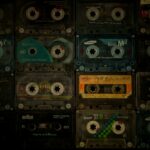by Nicole Yurcaba

The word “sibilance” refers to the pronunciations of the letter “s.” In Sally Van Doren’s fourth poetry collection Sibilance, poems appear in alphabetical order, and each poem stands as its own celebration of a letter and a sound most people take for granted or ignore. Some poems are witty. Some are unhinged, and some are deeply reflective. Others are slyly political, and no matter what one’s poetical leanings might be, Sibilance has a little something to offer everyone.
In all fairness, however, Sibilance is the type of poetry collection that takes a while to warm up to. It really does not gain momentum until one is at least three poems deep into the collection. Van Doren’s wittiness shines in “Apolitical,” one of the collection’s initial poems. This right-aligned, slim piece consists of a flurry of domestic images: a poached “egg / the color of his face;” a “pastor in the field / who will minister / to our deepest needs.” However, it is the poem’s final four lines which are the most beautiful and enlightening: “The sunflowers tower / in their august glory / until the heft of their / seedy heads topples them.” One cannot help but notice the internal rhyme of the noun “sunflowers” and the verb “tower.” The image of “seedy heads” which topple a mysterious “them” reads like a quiet criticism of American politicians hellbent on destroying democracy, but the beauty of these lines is that one can accept them superficially or read them with an awareness of the apolitical–or not so apolitical–world around them.
“Clemency” is a sensual poem which opens with the quietly erotic lines “She is very beautiful / without her shirt on.” Again, domestic images permeate the poem, but subtle feminist undertones also exist within the images. Readers see a woman who had a “man with her / yesterday, but tonight she / is all alone.” That aloneness quickly disappears as the speaker states that they “invited” her “out over the rooftops.” Once more, Van Doren proves herself to be a master at developing clinching, emotional concluding lines:
I’ll wait on the bed
until you have had your fill
of moonscape and skyscraper.
And then you can return
to me and reinvent me
once more, head to toe.
A strange sense of devotion forms, even though the speaker seems to be an omniscient observer.
Sibilance also bears a few Transcendentalist moments which cause readers to pause and enjoy the natural world. “Nursery” is definitely a celebration of the natural world and the respite it offers from modernity’s hustle and bustle. In some ways, the poem’s opening four lines carry an Eliot-esque tone:
The sun sealed the snowfield
like epoxy–not one daffodil
could pierce it to announce
that April was a week away.
The repetition of “We” throughout the poem shapes a communal experience and lures readers into the poem’s images of a landscape’s “cold lacquer.” Ultimately, the images unfold, giving way to “a clear flow” and a “mutant foetus / sucking at the paps of the first / word that refused to darken the page.” Thus, the poem morphs from a contemplation of the beauty and cruelty of nature into a reflection about the beauty and cruelty of the writing process.
And, speaking of the beauty and cruelty of the writing process, the poem “Stand-Up Poet” will resonate with anyone who has ever dared to endure open mic nights, organized readings, and book launches. However, the poem is anything but a celebration of the events which bring keepers of the pen together. It opens with the snarky line, “I’m here because I can’t / take one more poetry reading.” The world of the poem is “like the stagnant / brown water that puddles in the mud” and poets are individuals whose “gift is not gab.” Nonetheless, the speaker asserts that even though the world of poetry readings is, quite frankly, ruthless, it can be a place of empathy where “we feel the tender follicles / ripped from their fertile fonts.”
“Sun and Moon in Libra” is an eloquent poem of defiance and survival. It is nostalgic and intimate, a poem in which the speaker hears “only / the music which tells me / I’m dreaming of the past.” Its language and its structure make it sleek, sexy, and fluid–a combination that makes it one of the collection’s more memorable poems. The speaker is, at times, pessimistic: “At least I’m prepared for / the next day that doesn’t come.” Nonetheless, they leave readers with a few words of encouragement: “occasionally, we say ‘Bless you,’ / wipe our noses, and soldier on.” How is that for positivity?
The quiet ache of living thuds and throbs in Van Doren’s poems. In these poems, readers travel inward, outward, and inward again, and each poem is a step in the poetic exploration of humanity, individuality, nature, and even boredom. Thus, the allure of Van Doren’s collection is its celebration of a life well-lived and a life well-explored in language that is irreverent and bold in all the best poetic ways.
Nicole Yurcaba (Ukrainian: Нікола Юрцаба–Nikola Yurtsaba) is a Ukrainian (Hutsul/Lemko) American poet and essayist. Her poems and essays have appeared in The Atlanta Review, The Lindenwood Review, Whiskey Island, Raven Chronicles, West Trade Review, Appalachian Heritage, North of Oxford, and many other online and print journals. Nicole teaches poetry workshops for Southern New Hampshire University and is a guest book reviewer for Sage Cigarettes, Tupelo Quarterly, Colorado Review, and The Southern Review of Books.



Add your first comment to this post